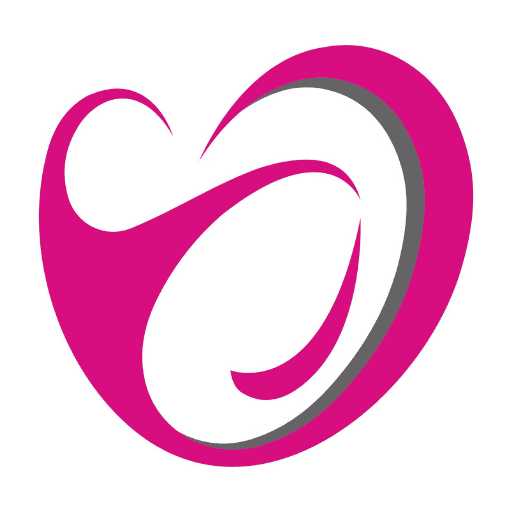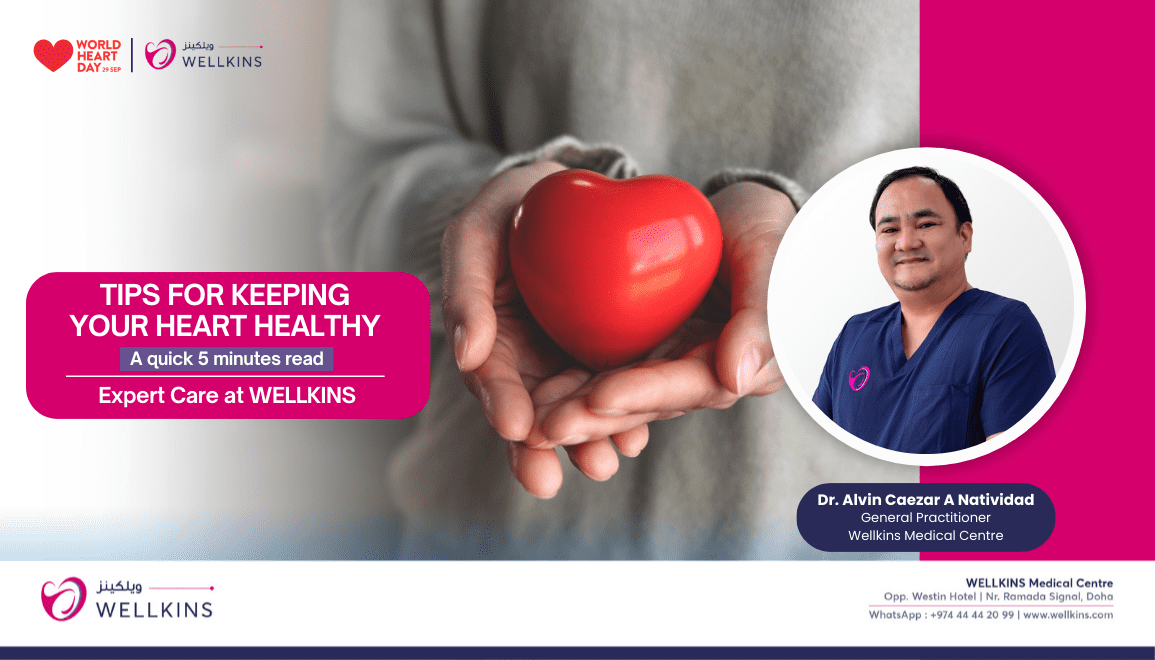Author: Dr. Alvin Caezar A Natividad, General Practitioner Wellkins Medical Centre
The human heart is undeniably the body’s most vital organ a resilient and tireless powerhouse that tirelessly pumps blood, delivering essential oxygen and nutrients to every single cell and tissue. Its continuous, rhythmic function is the very essence of life, making an understanding of heart health and taking proactive steps to protect it absolutely crucial for our overall well-being. In honor of World Heart Day 2025, a global observance on September 29th, we at Wellkins Medical Centre invite you to delve deeper into the profound significance of our hearts and discover essential, updated tips to maintain a robust cardiovascular system throughout your life. This year’s theme focuses on “Nurturing Every Beat for a Healthier Tomorrow,” emphasizing personalized care and sustainable heart-healthy practices.
Every individual knows that a heart condition can turn your world upside down. The thought of a major cardiac event, the need for significant lifestyle changes, and the fear of long-term complications are instantly concerning. With an increasing prevalence of risk factors like diabetes and hypertension in Qatar, it’s crucial to understand the silent progression of cardiovascular disease.
Understanding Your Heart: The Core of Your Existence
Your heart is a remarkable muscular organ, roughly the size of your fist, strategically located in the center of your chest, slightly to the left. It functions as a dual-action pump, working continuously, often beating over 100,000 times a day, to efficiently circulate blood and oxygen throughout your entire body. Its role is absolutely critical to every aspect of your overall well-being, from physical energy to cognitive function. Here’s why knowing and cherishing your heart is essential:
Optimizing Blood Circulation and Nutrient Delivery: The heart efficiently pumps oxygenated blood, enriched with vital nutrients, from the lungs to all other parts of your body. This intricate network ensures that every organ, muscle, and tissue receives the sustained supply it needs to function correctly, grow, and repair itself. Without this constant flow, cellular processes would cease.
The Unseen Sustainer of Life: Beyond mere circulation, a healthy heart is the ultimate sustainer of life. Without its optimal function, the body’s organs and tissues would suffer from hypoxia (lack of oxygen) and nutrient deprivation, rapidly leading to cellular damage, organ failure, and ultimately, putting your life at significant and immediate risk. It acts as the central, indispensable engine of your entire circulatory system.
Prevention Against Heart Disease: A deep understanding of your heart’s intricate function, coupled with knowledge of your personal risk factors, supports you to take significant proactive steps. Heart disease, encompassing conditions like coronary artery disease, heart attack, and stroke, remains one of the leading causes of morbidity and mortality worldwide. However, a vast majority of these cases are preventable through informed lifestyle choices, regular screenings, and timely medical intervention.
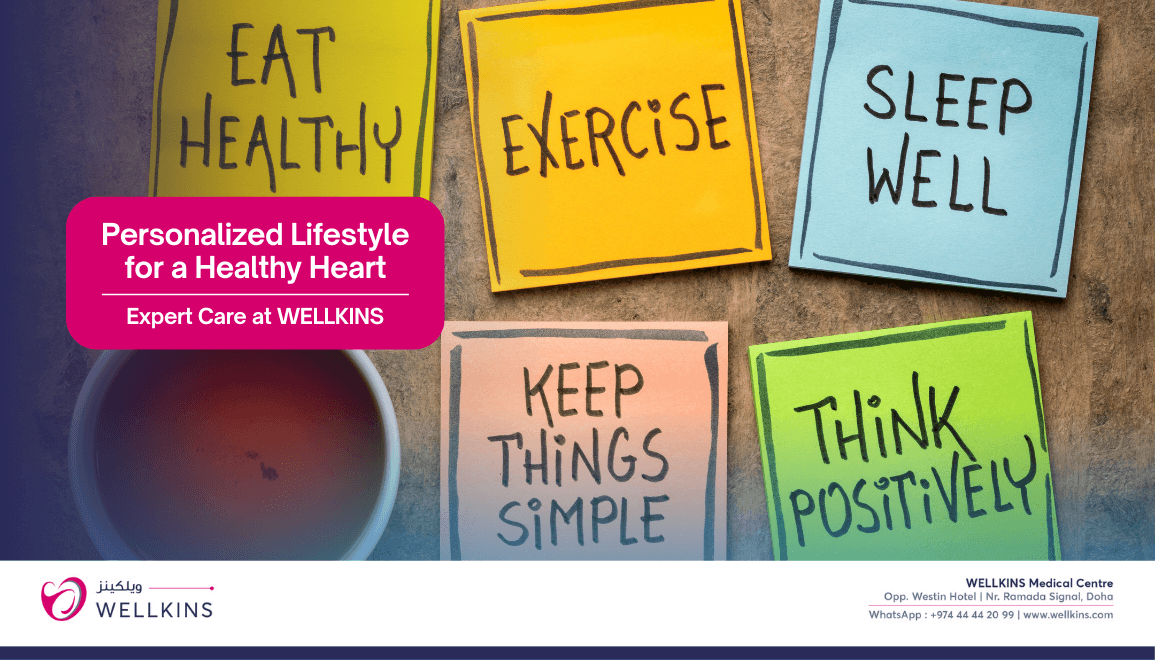
Personalized Lifestyle Habits to Nurture Your Heart’s Health
Maintaining a strong and resilient heart is not only achievable but also profoundly impactful. By incorporating a few simple yet powerful and personalized lifestyle habits into your daily routine, you can significantly reduce your risk of cardiovascular disease, enhance your vitality, and promote overall heart health for years to come.
Consistent Physical Activity: Aim for about 20–30 minutes of moderate intensity aerobic exercise (such as brisk walking, swimming, or cycling) each day, or about 10–15 minutes of vigorous-intensity exercise (like running or high-intensity interval training) daily. Regular physical activity profoundly strengthens the heart muscle, improves its pumping efficiency, enhances blood flow, helps manage healthy cholesterol levels and significantly contributes to lower blood pressure. Even short bursts of activity throughout the day can accumulate positive benefits.
Incorporate a Balanced, Heart-Healthy Diet: A truly heart-healthy diet is abundant in fresh fruits, vibrant vegetables, whole grains (like oats, brown rice, quinoa), lean proteins (such as fish, poultry, legumes), and healthy fats (from avocados, olive oil, and nuts). It critically involves limiting your intake of saturated and trans fats, cholesterol, excessive sodium, and added sugars, all of which contribute to plaque buildup in your arteries and increase heart disease risk. Consider consulting a dietitian for a tailored plan.
Attain and Maintain a Healthy Weight: Carrying excess body weight, particularly around the abdominal area (visceral fat), places an undue strain on your heart and significantly increases your risk of developing high blood pressure, type 2 diabetes, high cholesterol, and sleep apnea all major contributors to heart disease. Maintaining a healthy body mass index (BMI) and waist circumference is paramount for long-term cardiovascular health.
Eliminate Tobacco Use Entirely: Smoking and any form of tobacco use are among the most significant modifiable risk factors for heart disease. The multitude of harmful chemicals in tobacco smoke directly damage your blood vessels, narrow your arteries (atherosclerosis), raise your heart rate and blood pressure, and dramatically increase your risk of heart attack and stroke. Quitting smoking is, without question, the single best action you can take to protect your heart health.
Mindful Alcohol Consumption: Excessive alcohol intake can lead to elevated blood pressure, contribute to irregular heart rhythms (arrhythmias), and weaken the heart muscle, potentially leading to heart failure.
Proactive Stress Management: Chronic, unmanaged stress takes a heavy and cumulative toll on your heart. It can contribute to high blood pressure, irregular heart rhythms, and can lead to unhealthy coping mechanisms. Integrate effective stress-reducing activities into your daily routine, such as practicing mindfulness, meditation, engaging in hobbies, spending time in nature, or connecting with loved ones.
Prioritize Quality Sleep: Sufficient and restful sleep is fundamental for cardiovascular health. Poor sleep quality or chronic sleep deprivation can contribute to high blood pressure, diabetes, and inflammation, all of which elevate heart disease risk. Aim for 7-9 hours of uninterrupted sleep each night.
Potent Foods to Keep Your Heart Strong
The food choices we make profoundly impact our heart health. Incorporating specific nutrients and types of food can actively reduce the risk of heart disease, lower detrimental cholesterol levels, and improve overall cardiovascular function.
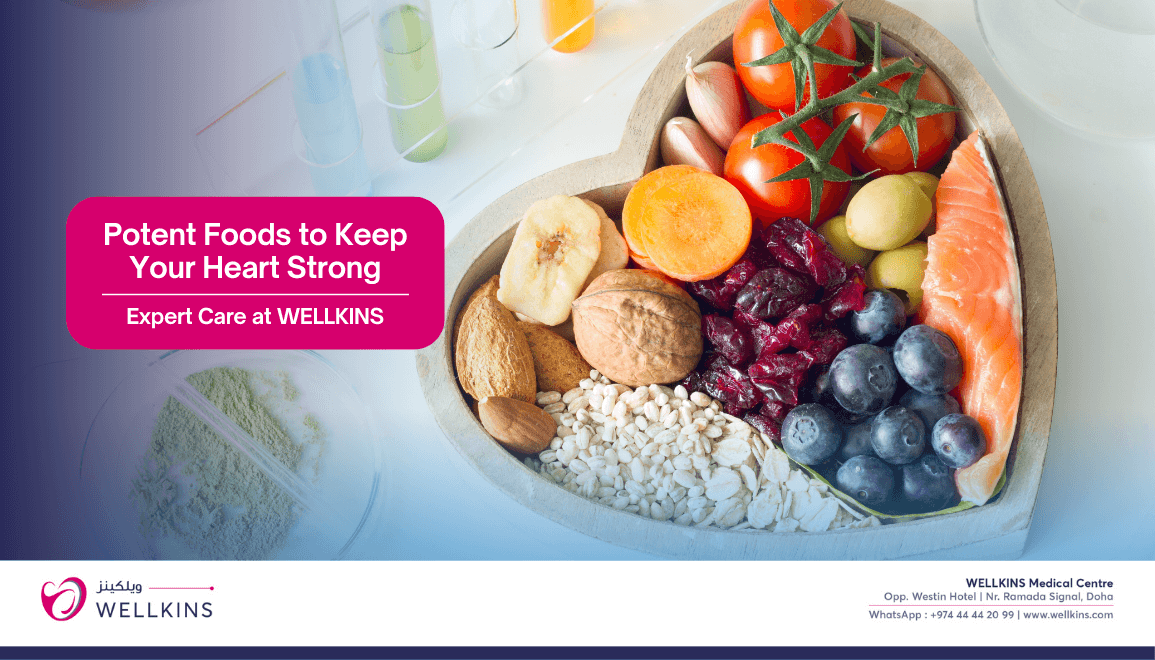
Omega-3 Rich Fatty Fish: Salmon, mackerel, sardines, and anchovies are exceptional sources of omega-3 fatty acids. These essential fats are renowned for their anti-inflammatory properties, ability to lower triglyceride levels, reduce blood clotting, and decrease the risk of arrhythmias, all contributing to a significantly lower risk of heart disease.
Antioxidant-Packed Berries: Blueberries, strawberries, raspberries, and blackberries are bursting with antioxidants, particularly anthocyanins. These compounds help protect your heart from oxidative stress, reduce inflammation, and can improve blood vessel function.
Heart-Healthy Nuts and Seeds: Almonds, walnuts, pistachios, chia seeds, and flaxseeds provide an excellent source of healthy unsaturated fats, dietary fiber, and powerful antioxidants. Regular consumption can help lower “bad” LDL cholesterol levels, improve blood vessel health, and reduce inflammation.
Fiber-Rich Whole Grains: Oats, barley, brown rice, and quinoa are high in soluble fiber, which plays a crucial role in lowering cholesterol levels by binding to cholesterol in the digestive tract and preventing its absorption. Whole grains also provide sustained energy and support healthy blood sugar levels.
Nutrient-Dense Leafy Greens: Spinach, kale, collard greens, and Swiss chard are vibrant sources of vitamins (especially K), minerals, and potent antioxidants. Vitamin K helps protect your arteries from calcification and promotes proper blood clotting, while nitrates found in these greens can help lower blood pressure.
Powerhouse Legumes: Beans, lentils, and chickpeas are fantastic sources of soluble fiber, plant-based protein, and essential minerals like magnesium and folate. Regular intake can significantly help reduce blood pressure, lower cholesterol, and improve overall cardiovascular markers.
Avocado and Olive Oil: These are prime examples of healthy monounsaturated fats. Avocados are rich in potassium and healthy fats, which are beneficial for blood pressure management. Extra virgin olive oil, a cornerstone of the Mediterranean diet, helps reduce inflammation and can improve cholesterol profiles.
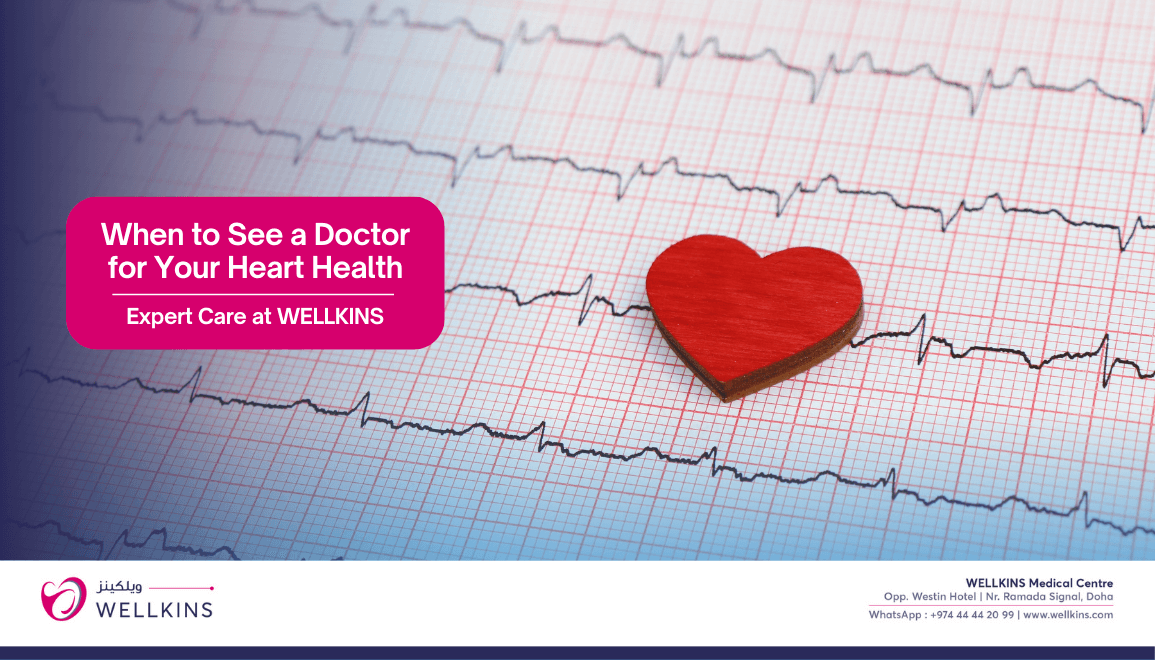
When to Seek Professional Medical Attention for Heart Concerns
While proactive lifestyle habits are essential for long-term heart health, it’s equally critical to be attuned to your body and recognize when to seek professional medical attention. Ignoring warning signs can have serious consequences. Here are some signs and symptoms that should prompt you to consult a healthcare professional immediately:
Chest Pain or Discomfort: Any new or worsening chest pain or discomfort, especially if it feels like pressure, squeezing, fullness, or a dull ache in the center or left side of your chest, could be a critical sign of a heart attack. It’s even more concerning if this discomfort radiates to your arm (particularly the left), jaw, neck, or back. Seek emergency care without delay.
Unexplained Shortness of Breath: Difficulty breathing, even during light activity, or experiencing shortness of breath while resting or lying down, may be a significant sign of heart issues like heart failure or coronary artery disease. If it’s sudden or severe, seek immediate medical help.
Irregular or Rapid Heartbeat: If you frequently experience a rapid, irregular, fluttering, pounding, or racing heartbeat, known as palpitations, it could signal an arrhythmia (abnormal heart rhythm) or another underlying heart condition that requires evaluation.
Dizziness, Lightheadedness, or Fainting: Frequent episodes of dizziness, lightheadedness, or outright fainting spells (syncope) could indicate an underlying heart condition that is affecting blood flow to the brain, such as an arrhythmia, valve problem, or low blood pressure.
Swelling (Edema) in Extremities: Unexplained swelling in the legs, ankles, feet, or abdomen may be related to heart problems, as a weakened heart can cause fluid to back up in the veins and accumulate in body tissues. This can also manifest as sudden weight gain.
Unusual or Extreme Fatigue: Persistent or unusual fatigue that doesn’t improve with rest and significantly impacts your daily activities could be a subtle but important sign of a heart problem, especially in women, or other underlying health issues.
Pain in Other Body Parts: Discomfort in your neck, jaw, throat, upper back, or stomach can sometimes be a symptom of a heart attack, particularly in women.
The Heart: The Core of Your Existence
Commitment is a journey towards a healthier, more vibrant tomorrow. While the concept of dealing with potential heart issues can be daunting, it is not a journey you have to face alone. Proactive measures, informed decisions and timely professional guidance are your strongest allies.
At Wellkins Medical Centre, we are staunchly committed to providing complete and compassionate care. We are here to help you understand your unique heart health profile. Our approach is to deliver a thorough assessment, swift diagnosis and then partner with you to develop a personalized treatment plan. This plan integrates cutting-edge medical treatments with tailored lifestyle and dietary recommendations, all designed to safeguard your cardiovascular health. On World Heart Day 2025, remember that nurturing your heart is an ongoing process.
To book an appointment at Wellkins Medical Centre: https://wellkins.com/visit

